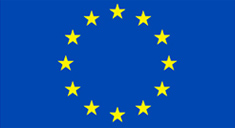Results of the first call for proposals
We appreciate the great number of applications we received for the first call for proposals and the overwhelming interest in the TALENT Doctoral Programme.
For the first call for proposals, the Talent Doctoral Programme received 1,091 applications, of which 65 made it to step two of the evaluation, the pre-selection at department level. The 1,026 applicants, who did not pass step one of the evaluation, the eligibility and admissibility check, were notified accordingly by email (individually) on Tuesday October 16, 2018. This message was followed up by another email on Friday October 26, 2018 with a link to this webpage and the statement below explaining why applications were rejected at step 1 of the evaluation.
Of the mentioned 65 applications, which went to step two of the evaluation, 22 reached step three, the expert/international review. The 43 applicants not passing step two of the evaluation received an explanatory email with a rejection on Monday November 5, 2018. Moreover, the 22 applicants, whose proposals were reviewed as part of step three of the evaluation, were duly notified of this by email on Monday November 5, 2018.
At step 3: the expert/international review, the 22 applications were each evaluated by two evaluators. A third evaluator was included for two applications because the two designated evaluators’ opinion differed greatly. 20 out of the 22 applications reached the employment threshold of four; two did not. (One of the two applications, which had a third evaluation, reached the threshold, the other did not.) On Wednesday 28 November 2018 the applicants received an email with a link to the recruitment/application system, where they could download the consensus report, incl. the overall score. They had until Tuesday 4 December 2018, 12.00 CET to comment on the report and six of them did so.
On Thursday 6 December 2018 (11.00-11.30 CET), the Research Committee at the Faculty of Science convened as part of step 4: the final selection of candidates, and decided on the candidates to hire. The committee decided to offer employment to all 20 candidates above the employment threshold of four. Immediately after the meeting, all 22 candidates were informed individually of the decision by email.
Reasons for Rejection at Step one: the Eligibility and Admissibility Check
The reasons for the rejection at step one were due to the fact that applicants submitted incomplete applications and/or did not live up to the requirements conveyed and explained in the job advert, the Guide for Applicants (incl. the four mandatory templates), the Evaluation Guide, the FAQ and on the TALENT website. Below we give some examples.
- Some applicants did not – or only to some extent – use the four mandatory templates, i.e. the cover/motivation letter, the project description (incl. ethical assessment form), the prioritized CV (incl. publications) and the declaration of mobility. Others did not include the required documentation such as recommendation letters, diplomas and transcripts.
- Quite a few applicants tried to document their English skills by submitting a statement from e.g. a university saying that the medium of instruction during their MSc was English. However, the Guide for Applicants clearly states which English tests we request and which score we require. The FAQ explains which citizenship one must have in order not to provide the required English test. Other applicants uploaded one of the required tests but the score was too low.
- There were also cases where applicants submitted an alternative project description, which did not follow the criteria and structure that we outlined in the template for the project description (incl. ethical assessment form).
- Some applicants submitted the documents we requested but overlooked the eligibility criteria and did not e.g. live up to being in the first four years of their research career. It is up to the applicants – as part of their application and within the deadline – to show that they are indeed in the first four years of their research career. If an applicant is on the verge of not fulfilling the criteria, the burden of proof lies with the applicant. Other applicants – with a BSc degree – did not include sufficient documentation to assess whether they were on MSc level even though the Guide for Applicants emphasizes that we require documentation in such situations.
We also experienced a combination of all of the above examples.
To sum up
The TALENT secretariat would like to underline that we evaluated the applications at step one: the eligibility and admissibility check according to the eligibility, admissibility and evaluation criteria as communicated and explained in the job advert, the Guide for Applicants (incl. the four mandatory templates), the Evaluation Guide, the FAQ and on the TALENT website. It was clearly stated that all requirements must be met for an application to be considered eligible. Several employees with long and extensive experience with PhD education and the European Framework Programmes for Research and Innovation, in particular the Marie Skłodowska-Curie actions checked the applications at step one. This was to ensure that only applications meeting the clearly stated eligibility criteria proceeded to step two in the evaluation process.
Reasons for Rejection at Step two: the Pre-selection at Department Level
At this stage, the proposals were rejected because the match between the applications and the department expertise was not sufficient and/or the applications were not competitive enough compared to the excellent applications submitted to the TALENT Doctoral Programme.
Contact
If you have questions about the programme, please contact the TALENT secretariat at talent@science.ku.dk.
Statistics of first call
To learn more about the first call for proposals, please refer to the (anonymized) statistics showing the nationality, gender and age of the applicants, incl. the choice of the applicants when it comes to departments and programme areas.
Horizon 2020
HORIZON 2020
This project has received funding from the European Union’s Horizon 2020 research and innovation programme under the Marie Skłodowska-Curie grant agreement No 801199.

